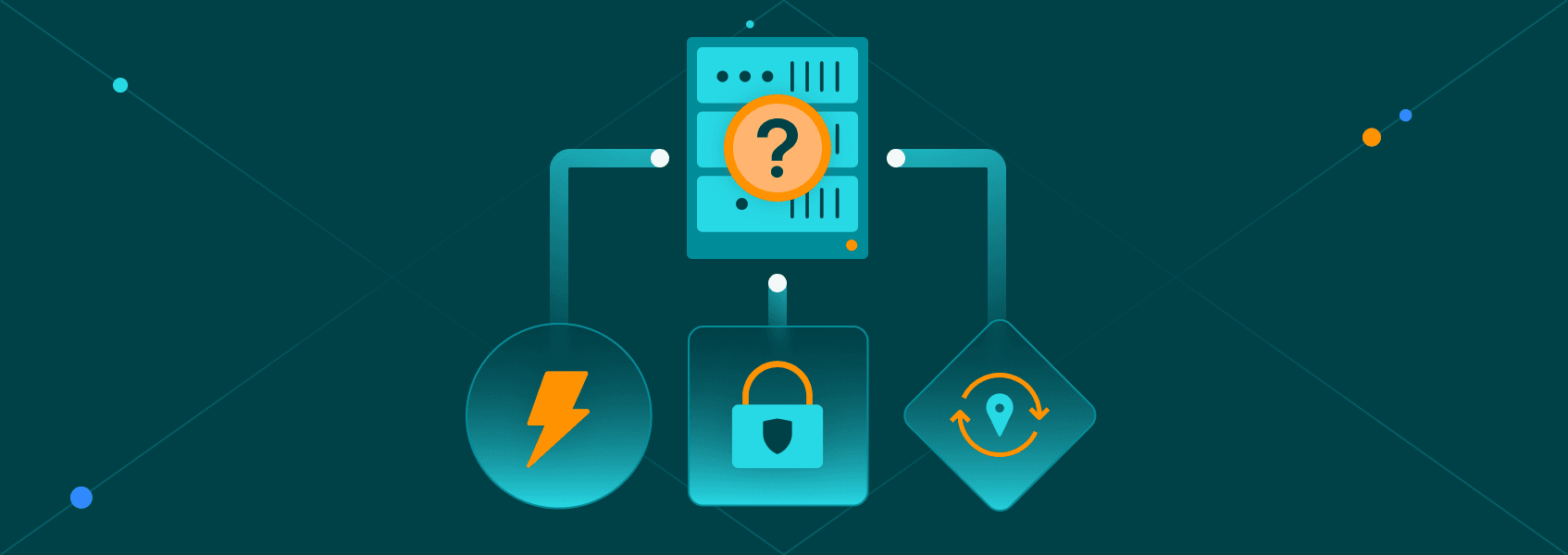
Main Residential Proxies Usage Mistakes and How to Avoid Them
5 min read
32M+ ethically-sourced unique IP addresses in 195 countries
Country , state and city-level targeting
Custom or automatic proxy rotation
~99.7% success rate
Unlimited concurrent sessions
No monthly commitment
Traffic-based pricing
Use our rotating proxies for as long as you need – traffic never expires
Automatic IP rotation
Proxy rotation is fully customizable – your residential IP addresses switch when needed
Authentication options
Whitelist or use USER:PASS combination to get access to your rotating residential proxies
Dedicated rotating proxies
Each rotating proxy IP address is assigned by account – no one else can use the same one at the same time
No session limit
None of our services have session limits – whether is rotating or static proxies
Limitless accessibility
Use our rotating proxies from anywhere, with any IP address you want, and for any (legal) purpose.
Never get blocked
Our rotating proxies will make IP blocks a thing of the past as you can switch them with every request
No contracts required
We minimize the legalese required to start using our rotating proxies – purchase, integrate, and you’re done
195+ locations
Our rotating proxy pool has over 195 locations with highly specific targeting, so you can get the IPs you need
Our rotating residential proxy pool is intended to provide you with block-free, effortless, and efficient experience. Customize your usage, access any website, and avoid CAPTCHAs while our team takes care of stability and security.
Your purchased traffic never expires – you can use our rotating proxies for as long as you have any bandwidth remaining.
Our rotating proxies will help you achieve any business goals, regardless of your use case or location.
Our dashboard provides you with all the tools necessary to control proxy server usage, track monthly costs, and collect data. All of these features are available with just a few clicks.
Integrate your rotating proxies with ease by following our in-depth documentation, API reference, or one of our quick-start guides.
Our goal has always been to create proxies that can match even the highest of needs. So, we strive to create the best rotating proxies for businesses of all sizes, use cases, and needs.
IPRoyal has a far more extensive collection of features than your standard web proxy, including over 195 countries of coverage, more than thirty two million IP addresses to select from at the highest-tier plan, and additional options like timed auto-rotation of your IP and instant IP changes.
IPRoyal is dedicated to transparency and to providing best-in-class service to their customers through a variety of affordable solutions and plans that come with round-the-clock support.
With a selection of different subscription options, some of the most affordable prices we’ve seen, and a responsive support team, IPRoyal rises to the top as a leading proxy service provider.
Tailored pricing solutions for businesses of all sizes
Bulk discounts
Buy rotating proxy traffic in bulk and increase your savings. Your traffic never expires, so there’s no risk
No monthly commitments
Our rotating proxy servers are based on bandwidth instead of monthly subscriptions and without complicated legal contracts
Self-service dashboard
Manage your proxy server pool, top-up your traffic, validate usage data, and much more through our dashboard
Travel Fare Aggregation
Rotating proxies are well suited for collecting pricing data from various travel websites, allowing you to quickly build the database you need.
Web Scraping
Access any number of websites virtually block-free and get all the data you need by utilizing our rotating proxy server pool.
Stock Market Data Collection
Avoid restrictions and blocks through our rotating proxies and extract data at scale from any stock market tracker.
A rotating proxy is a proxy server that assigns a new IP address from the proxy pool for every connection. That means you can launch a script to send 10,000 requests to any number of sites and get 10,000 different IP addresses.

5 min read

4 min read

5 min read
Rotating proxies are residential proxies that automatically change IP addresses. These settings can be customized by having them rotate upon every HTTP request, at set time intervals, or through other options. Sometimes they may be named as rotating residential proxies – these are identical products.
A rotating proxy is best utilized when a permanent identity is not required and when block rates are high. Since you change IPs frequently, websites like social media networks can issue bans just for that reason. For regular websites, however, you want to rotate proxies frequently as that will minimize CAPTCHAs and access restrictions. As such, rotating residential proxies are best for use cases such as web scraping.
Static proxies are best whenever you need a permanent identity such as for social media management.
Yes, all proxies are legal by themselves. Legality depends on your use case instead of proxies themselves. Additionally, your use case will also be subject to various Terms of Service restrictions that can be in place on a website.
Sticky sessions maintain a single IP address for a set amount of time. Rotating IPs will change frequently, depending on your settings. You may also receive a rotating proxy list, which will outline every proxy server the pool will run through.
No. IPRoyal does not offer datacenter proxies with automated rotation options.